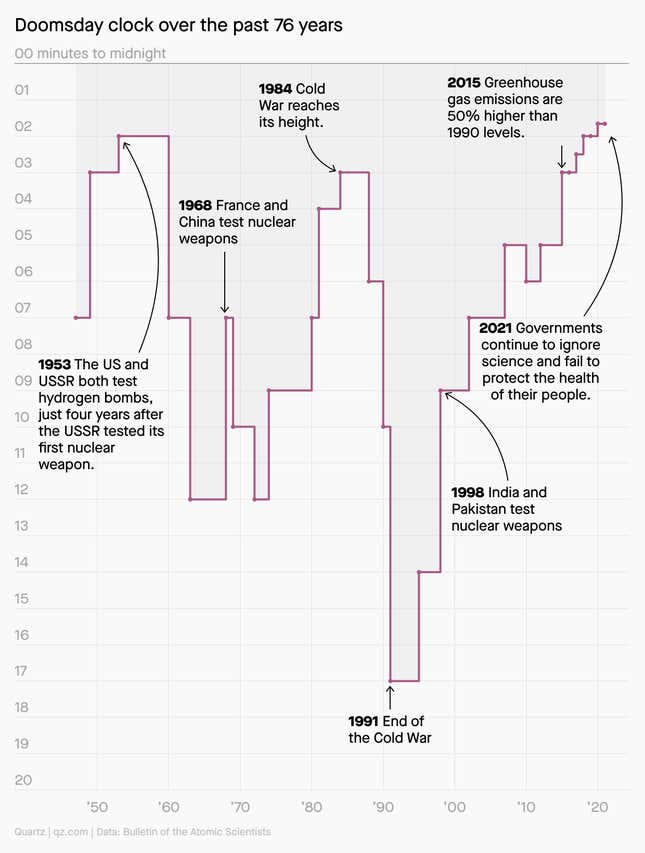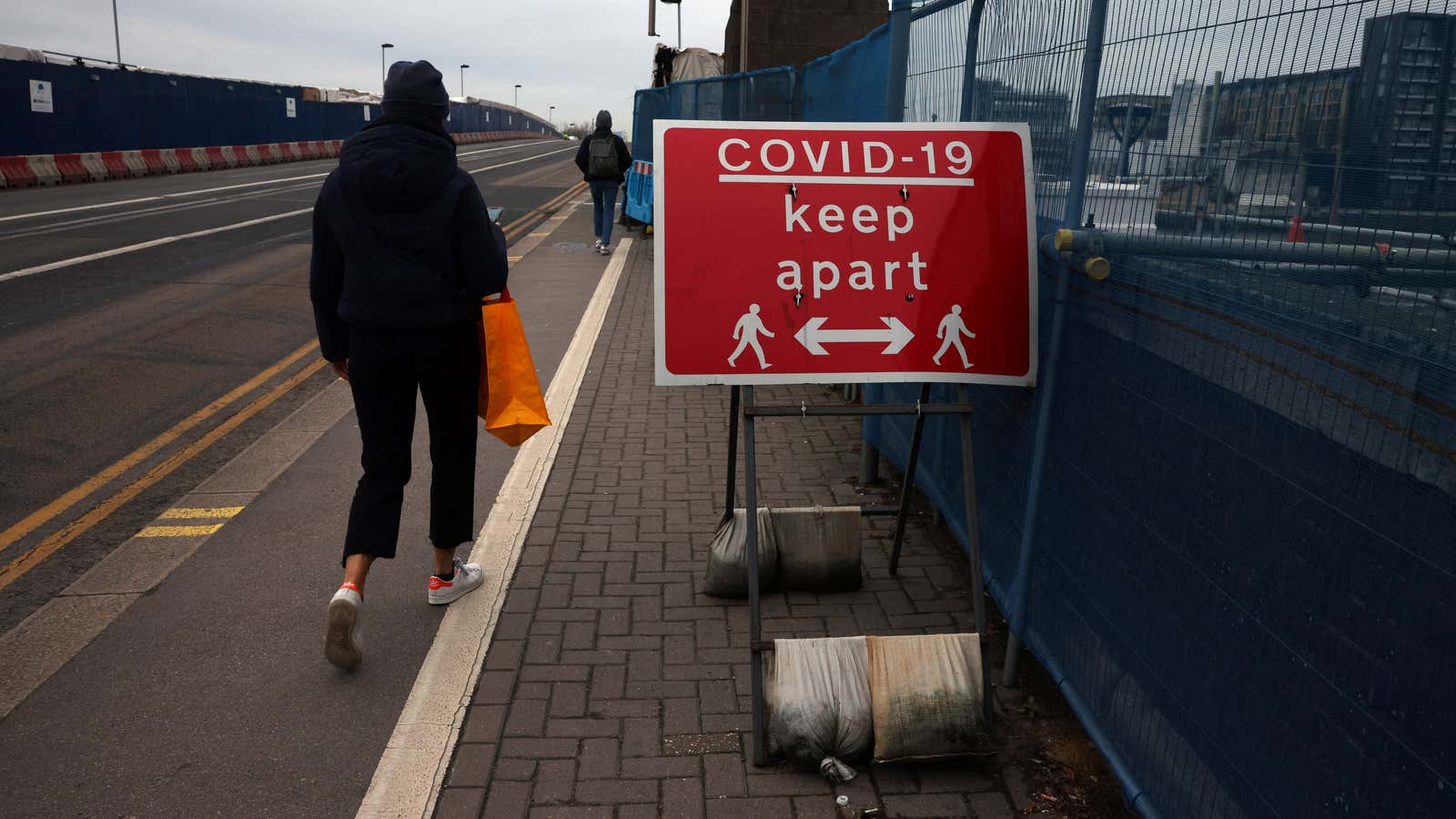Good morning, Quartz readers!
Was this newsletter forwarded to you? Sign up here. Forward to a friend who only buys produce in season.
Here’s what you need to know
England is finished with omicron restrictions… Even as UK PM Boris Johnson announced an end to plan B measures beginning next week, the WHO warned that record case counts in the EU mean that the pandemic is not remotely over.
…While other countries are stepping up spread prevention measures. The White House announced it would be distributing 400 million free N95 masks through US pharmacies, and Hong Kong’s government urged residents not to gather for the Lunar New Year.
US air travel struggled on 5G rollout day. But even with a buffer zone around some major airports, many international and domestic flights were canceled or delayed. Inbound flights from Japan will resume today.
Samsung unseated Intel as the world’s biggest semiconductor seller. As much of office work shifted to at-home settings, the electronics giant’s memory business saw a spike in demand.
Sony suffered from Microsoft’s big push into gaming. The latter’s announcement that it planned to purchase Activision Blizzard sent the former’s share price down 13%—a loss of $20 billion to its market cap—in Tokyo.
Crypto’s largest fund plunged nearly 30%. Grayscale Bitcoin Trust, a $27 billion fund, now has a price that’s well below the very bitcoin it holds.
What to watch for
Today, the Bulletin of the Atomic Scientists gives an update on the “Doomsday Clock,” a subjective measure of how close the world is to ending created by the scientists who developed the first nuclear bombs as part of the Manhattan Project. Since the clock was first introduced in 1945, the world has never been more than 17 minutes from midnight, a.k.a. doomsday.
Last year, the Bulletin made the somewhat surprising decision to keep the minute hand of the clock unchanged at 100 seconds to midnight, determining that things were still really, really bad, but covid-19 wasn’t going to bring about the total destruction of humanity. After another full year of governments and international organizations failing to get the pandemic under control—not to mention Russia’s recent provocations around Ukraine—it might be time for the clock to tick forward.

How China sees the world
“For many years, there’s been this presupposition that China would maintain the international system because it’s benefited so much from it. But I think that fails to recognize that over the past 40 years, China has changed and China’s interests are no longer the same as they were 40 years ago.”
In her new book The World According to China, Elizabeth Economy, senior advisor for China to the US secretary of commerce, argues that Beijing’s aim is to recast the values and norms that define the current rules-based international order shaped by the US so that they more closely align with its own authoritarian system. Reporter Mary Hui chatted with Economy about China’s ambitions and the fundamental challenge they pose. Read the full QZ&A.
China’s worldview will be on display at the 2022 Winter Games. Follow all the geopolitical intrigue—and the sports moments, natch—with our Need to Know: Beijing Olympics newsletter.
How China (still) sees covid
Beijing’s policy of keeping cases as close to zero as possible has helped China tame covid over the past two years, but it’s difficult to maintain amid infectious variants like omicron. Our latest Weekend Brief explains why China is sticking to its authoritarian approach and questions what happens when the costs become too high. ✦ Try a seven-day free trial of Quartz membership for access to all of our member-exclusive emails.
Handpicked Quartz
🚲 Peloton has gone from sprinting to sputtering to the finish line
🤔 The decentralized web is not decentralized
🎮 Andreessen Horowitz’s first African startup bet is a mobile games company
🤑 Most of the US’ $800 billion in paycheck protection funds went to the richest 20%
🥬 Unvaccinated truckers are making Canada’s vegetable shortage worse
🤝 How IKEA maintains culture for 170,000 global employees
Surprising discoveries
Nobody’s bidding on the world’s most expensive property. The Caravaggio mural it features is valuable, but NSFW.
Yet Oscar Mayer thinks its bologna face mask will fly off the shelves. The lunch meat company emphasizes that it’s for “your face, not your sandwich.”
Dutch museums briefly turned into salons as part of a lockdown protest. A good haircut is basically fine art.
Loud toilet flushing was ruled a human rights violation in Italy. A dispute between neighbors was finally settled after 19 years of lost sleep.
Venezuela’s president is… SuperMustache! The muscly cartoon superhero strikes down all enemies of the state.
Our best wishes for a productive day. Send any news, comments, cold cut beauty products, and paintings featuring flattering angles to hi@qz.com. Get the most out of Quartz by downloading our iOS app and becoming a member. Today’s Daily Brief was brought to you by David Yanofsky, Mary Hui, Tripti Lahiri, Jane Li, Liz Webber, and Susan Howson
